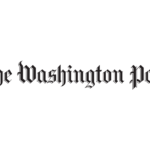Would You have Dropped the Bomb?
By Martin E. Marty, Pervez Hoodbhoy, Thomas Donnelly, Robert L. Gallucci, Gar Alperovitz, Richard B. Frank, Mary Palevsky, Tadatoshi Akiba | July 1, 2005
“All our final decisions are made in a state of mind that is not going to last,” wrote the French novelist Marcel Proust. In 1945, our collective state of mind was despair. World War II touched every inhabitable continent, leaving more than 50 million dead and millions of others as refugees. The conflict had spanned more than half a decade. It would effectively end during an interval of 43 seconds–the time it took for the atomic bomb to explode over Hiroshima after it was released by the Enola Gay on August 6. Three days later, a second bomb was dropped on Nagasaki, followed by Japan’s surrender. Sixty years later, we live in a world where the capacity for mass destruction is no longer limited to superpowers–or, for that matter, to nations. Our collective state of mind is one of vulnerability. The bombings of Hiroshima and Nagasaki are not just historical events but portents of a possible future for any city, anywhere. And it is through that lens that we find ourselves looking back at the decision of President Harry S. Truman and its legacy. With each passing decade, the anniversary of the atomic bombings provokes a debate over whether the United States made the right choice. But this crucial question is almost always considered in the abstract. A far more difficult task is to assume personal responsibility. With that in mind, the Bulletin sought out noteworthy thinkers with backgrounds in history, theology, physics, and diplomacy and posed a single, provocative question: “If the decision had been yours alone to make, would you have dropped the bomb?”
Together, we make the world safer.
The Bulletin elevates expert voices above the noise. But as an independent nonprofit organization, our operations depend on the support of readers like you. Help us continue to deliver quality journalism that holds leaders accountable. Your support of our work at any level is important. In return, we promise our coverage will be understandable, influential, vigilant, solution-oriented, and fair-minded. Together we can make a difference.
Issue: Bulletin of the Atomic Scientists Volume 61 Issue 4
Topics: Uncategorized
















